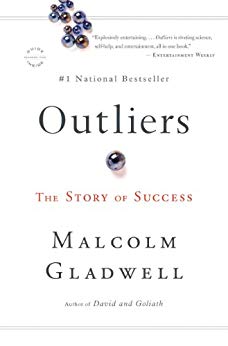

This article is an excerpt from the Shortform summary of "Outliers" by Malcolm Gladwell. Shortform has the world's best summaries of books you should be reading.
Like this article? Sign up for a free trial here .
Can practice override talent? Is it true that to master a skill, you need to put in 10,000 hours of practice?
Although we tend to think of practice as an equalizer, having the time to practice enough to master a skill is a luxury afforded only to the privileged. In fact, there are studies that show that the most masterful individuals in their fields have practiced their craft for at least 10,000 hours, which averages nearly 20 hours every week for 10 years.
Here’s why practice is only the tip of the iceberg when it comes to skill mastery.
The Opportunity of Time (and Timing)
It may seem obvious that we need to work hard to succeed, but Gladwell argues that, too often, we attribute success solely to talent and forget that the hours we put in matter just as much as, if not significantly more than, the natural gifts we start with. He writes that, after a certain level of natural talent gets your foot in the door in a particular field, practice becomes the determining factor in how successful you are.
Although we tend to think of practice as an equalizer—that anyone who is a hard worker can succeed—Gladwell points out that having the time to practice enough to master a skill is a luxury afforded only to the privileged. He argues that the opportunity to practice 10,000 hours typically emerges from two external factors: privilege and the timing of your birth.
| The 10,000-Hour Debate K. Anders Ericsson, the psychologist who led the study from which Gladwell gleaned the 10,000-hour rule, has criticized Gladwell for misrepresenting his research findings. In the study, Ericsson and his fellow researchers asked top-ranked violinists to estimate how many hours they’d spent practicing since picking up the instrument; they found that, on average, elite violinists had dedicated 10,000 hours of practice to their craft. Ericsson has argued in papers (including one pointedly titled “The Danger of Delegating Education to Journalists”) and in his book, Peak, that Gladwell oversimplified the results by making two mistakes: 1. He applied data about violinists to all fields, when it’s unreasonable to assume that all fields require the same amount of practice to achieve mastery. 2. He neglected to specify that the type of practice is far more important than the amount of time spent practicing. Ericsson’s study emphasizes that mastery requires deliberate practice, which is an intensely focused and effortful form of practice that constantly pushes the practitioner to stretch their abilities. In response, Gladwell has since clarified that he wasn’t suggesting that 10,000 was a universal magic number (even though he writes in Outliers that “Ten thousand hours is the magic number of greatness,” and he’s the first to dub this concept with the name, the 10,000-Hour Rule). Instead, Gladwell seems to use the theory to reinforce the importance of time in achieving success, which sets up his larger point that having that time in the first place is a privilege that not everyone has. This may be another case where Gladwell’s popularity inadvertently fuels the criticisms against him: Because Outliers was so widely read, he is largely responsible for introducing this concept to the masses. As a result, his popularization of the 10,000-hour theory is often conflated with his endorsement of it. |
Factor #1: Privilege
Gladwell states that, in order to master a skill by adulthood, carving out 10,000 hours of practice in your childhood requires the support of the adults in your life—and it helps if your family has money. Money buys time, and time is necessary for practice. For instance, you can’t devote yourself to the full-time practice of a craft if you have to work a part-time job to pay for your lessons or simply contribute to family expenses. Additionally, if going to school eats into your practice time, wealthier families can afford to homeschool or arrange for special accommodations that allow for extended practice hours.
| Time Poverty Is Often Part of a Vicious Cycle of Poverty Research bears out that time poverty often goes hand-in-hand with income poverty. For example, if you are income-poor and your car breaks down, you can’t afford the repairs unless you clock extra hours at work—but you can’t put in those extra hours because you have to spend more time commuting by bus until your car is fixed. Moreover, time and income poverty compound to create bandwidth poverty, when the pressing needs of the moment deplete your mental capacity for the long-term planning and self-control needed to address some of your time and money issues, creating a vicious cycle. To bring this back to Gladwell’s argument, even if you carved out some time to practice your skill, your bandwidth poverty would make it nearly impossible to put forth the intense focus required for meaningful deliberate practice. |
Factor #2: The Timing of Your Birth
Besides privilege, Gladwell posits that—just as your birth month affects your success in school or sports—your birth year, in relation to historical events, may provide unique opportunities to practice that wouldn’t otherwise be available to you.
As examples of this theory, Gladwell points to an inordinate number of successful computer programmers who were born between 1952 and 1958. These individuals came of age during the dawn of the personal computer in 1975.
- Bill Gates: founder of Microsoft, born 1955
- Paul Allen: co-founder of Microsoft, born 1953
- Steve Ballmer: third richest man at Microsoft, born 1956
- Steve Jobs: co-founder of Apple Computer, born 1955
- Eric Schmidt: chief executive officer of Google and founder of Novell software firm, born 1955
Gladwell writes that individuals born before this sweet spot in the 1950s were too old and set in their ways to be willing to take risks on new ventures, while individuals born after missed their chance to get in at the start of a revolution.
| Counterpoint: Successful People Make Their Own Luck Gladwell’s argument that the luck of being born in the right time to practice 10,000 hours developing a skill set seems to center around innovative fields and changing social and economic circumstances: In addition to his example of computer programmers, he notes that 14 of the 75 richest Americans were born in the 1830s, which put them in an ideal position to take advantage of an economy that was transforming through the rise of industrialism, the construction of railroads, and the emergence of Wall Street. However, if Gladwell is arguing that this form of luck is often necessary to achieve innovative success, psychologist Richard Wiseman counters in The Luck Factor that supposedly “lucky” people actually make their own luck through four behaviors: 1. They expose themselves to a variety of people and experiences. 2. They trust their instincts. 3. They’re optimistic that their “luck” will continue. 4. They find lessons and opportunities in failures. Gladwell doesn’t deny that successful people—including the computer programmers above—have a baseline of natural talent that contributed to their achievements. Given those natural abilities and work ethic, someone like Bill Gates may have been just as likely to find success in a different field had he been born in another era. |
Case Studies: Bill Joy and Bill Gates
To illustrate the importance of the opportunity to practice and the luck of timing, Gladwell examines the circumstances that contributed to the successes of Bill Joy and Bill Gates, two key players in the rise of computers and the internet.
Example #1: Bill Joy
Gladwell first explores the circumstances that benefited Bill Joy, the “Edison of the Internet” and co-founder of Sun Microsystems (one of the most important companies in Silicon Valley), who first discovered computer programming at the University of Michigan. He went on to make several significant contributions to the world of computer science.
Joy had several extraordinary opportunities to develop his skills, according to Gladwell. These opportunities depended on timing and allowed him to accumulate hours of practice:
- In 1971, the University of Michigan was one of the first universities to adopt a computer system that allowed multiple users to program at once. Because of his birth year, Joy was one of the first students at the university to use the new computer system—students before him didn’t have this technology, and students after him missed the small window of time to write code for accessing the internet, as Joy did.
- Because of a bug in software designed to restrict students’ allotted computer time, Joy was able to hack the system and extend his hours of coding practice.
- The computer center was open 24 hours, allowing Joy unlimited access. He spent eight to 10 hours a day programming.
According to Gladwell, Joy estimates that by the time he felt proficient in computer programming (his second year in graduate school at Berkeley), he had logged approximately 10,000 hours of practice. But he never would have logged that many hours if his birth year and a series of lucky breaks hadn’t given him the opportunities for practice.
(Shortform note: Again, while Joy was lucky to have the opportunities listed above, not every college student in his position would have spent eight to 10 hours a day programming—Joy had to have an immense amount of interest and dedication to take advantage of those opportunities in such an extreme way. Acknowledging this doesn’t counter Gladwell’s point: Outliers isn’t meant to argue that success depends solely on opportunity, but rather that it’s not based solely on hard work and intelligence, either.)
Example #2: Bill Gates
Bill Gates also had extraordinary opportunities that provided him with the computer programming experience necessary to found Microsoft after dropping out of Harvard. Gladwell explains that:
- Gates’s family could afford to send him to a private grade school with a computer terminal. This was remarkable in 1968, when most colleges didn’t have access to computers. This allowed Gates to start accumulating his 10,000 hours of programming practice when he was only in the eighth grade.
- A local company offered Gates and his computer-programming friends free computer time in exchange for testing the company’s software.
- Gates happened to live within walking distance of the University of Washington, where his friend found access to a computer that was free between 3 and 6 in the morning. Gates would sneak out after his parents were asleep to steal computer time at the university.
- In his senior year of high school, Gates convinced his teachers to let him work on a computer programming project in southern Washington as an “independent study project.” The company needed a specialist in a particular kind of software, but the software was so new that specialists were hard to find—however, Gates had thousands of hours of experience with it.
Gladwell says that all of these extraordinary opportunities allowed Gates the time to practice and hone his skills. By the time he dropped out of Harvard, Gates had been programming nonstop for seven years.
| In Sports, Hours Can’t Compensate for Lack of Ability Since the publication of Outliers—and the subsequent criticism about the 10,000-hour rule—Gladwell has clarified that the rule is a stronger determinant of success in intellectual endeavors than in physical ones. This clarification is at least partially in response to The Sports Gene, by David Epstein, which argues that favorable genetics are a necessary factor in athletic achievement, and that no amount of practice can make up for a lack of innate ability. Epstein cites the disproportionate number of elite runners who come from the Kalenjin tribe in Kenya. One of the primary and undeniable factors in this tribe’s running ability is their body type: They have thin calves and ankles that help them run faster and more efficiently than others. Additionally, on the nurture side of the issue, Kalenjin must silently endure intense pain during a traditional rite of passage, and that ability may help them push through long, difficult runs. On a spectrum of success factors, Epstein would fall on the end that strongly (but not solely) emphasizes innate ability, while Ericsson is on the opposite end, making a case for hard work and practice. And although Gladwell is often criticized for leaning too heavily toward Ericsson’s side, a close reading of Outliers and Gladwell’s subsequent writing seems to put him closer to the middle. |
———End of Preview———

Like what you just read? Read the rest of the world's best summary of "Outliers" at Shortform . Learn the book's critical concepts in 20 minutes or less .
Here's what you'll find in our full Outliers summary :
- What makes some people outliers, and most others not
- Why some genius outliers end up failing in life
- Why Asians are good at math, and other curiosities of culture






